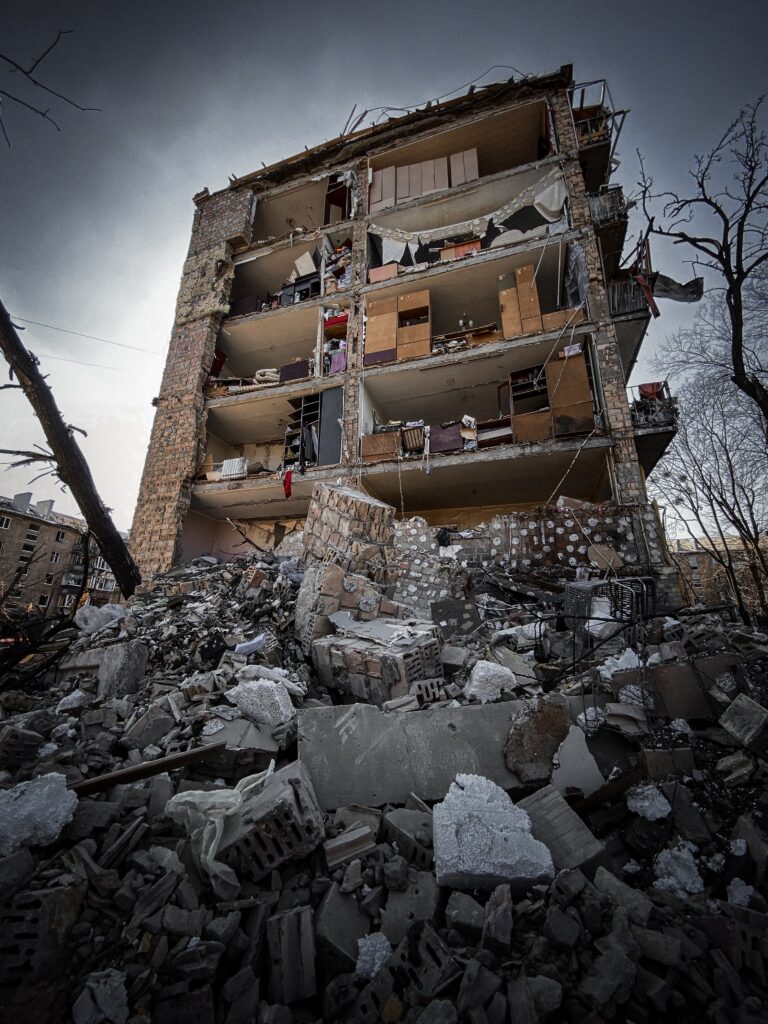
Morocco, a country known for its rich history, vibrant culture, and stunning landscapes, was struck by a catastrophic event of unprecedented magnitude on a fateful night. A rare and powerful 6.8-magnitude earthquake shook the heart of this North African nation, leaving behind a trail of destruction and despair. This article delves into the details of the earthquake, its immediate aftermath, and the resilience displayed by the Moroccan people and the international community as they come together to cope with this tragedy.
The Earthquake’s Impact:
On that ill-fated night, Morocco experienced one of the strongest earthquakes in its recorded history. The U.S. Geological Survey recorded the quake as a 6.8-magnitude event, while Morocco’s National Seismic Monitoring and Alert Network measured it at 7 on the Richter scale. The tremors, which began at 11:11 p.m. locally, lasted for several agonizing seconds, causing widespread panic and fear. The magnitude of the earthquake became evident as it reverberated across the country.
The epicenter of this catastrophic event was located within the Moroccan High Atlas Mountain range, approximately 75 kilometers (46 miles) southeast of the city of Marrakech. The very ground that had borne witness to centuries of history and culture now shook with unprecedented force, leaving the region reeling from the aftermath.
The Impact on Marrakech:
Marrakech, one of Morocco’s most iconic cities and a popular tourist destination renowned for its historic palaces and vibrant markets, bore the brunt of the earthquake’s fury. The city, which had hosted the 2016 United Nations Climate Change Conference, found itself grappling with an entirely different kind of challenge – the task of rebuilding and recovering from a natural disaster.
As the seismic waves coursed through the city, Marrakech’s million-strong population and countless visitors were thrust into chaos. Buildings that had stood for centuries were shaken to their foundations, and historic landmarks, such as the 12th-century Koutoubia Mosque, suffered damage. The extent of the damage to this revered religious site was not immediately clear, but it served as a poignant reminder of the earthquake’s impact on the city’s cultural heritage.
The Human Toll:
The human toll of the earthquake was devastating. At least 2,100 people lost their lives in the aftermath of the quake, and over 2,400 others were injured. The Royal Moroccan Armed Forces reported that Al-Haouz province, where the epicenter was located, witnessed the highest number of casualties, followed closely by the province of Taroudant. The village of Amizmiz in Al-Haouz province, in particular, faced the grim reality of areas being entirely wiped out, as reported by local TV channels.
The injuries sustained ranged from minor to critical, with over 1,400 people classified as critically injured. These numbers painted a grim picture of the immediate aftermath, with rescuers working tirelessly to reach remote areas and provide assistance to those in need.
Response and Assistance:
In the face of such devastation, Morocco’s King Mohammed VI wasted no time in taking action. He ordered the mobilization of air and land assets, specialized search and rescue teams, and even a surgical field hospital. The Moroccan government was quick to respond to the crisis, although it had not yet formally requested international assistance – a prerequisite for outside rescue teams to be deployed.
However, the earthquake did not go unnoticed by the global community. Leaders from around the world expressed their condolences and offered their support. U.S. President Joe Biden conveyed his sadness at the loss of life and devastation caused by the earthquake, emphasizing the United States’ commitment to providing Morocco with all necessary assistance. In a written statement, President Biden assured that the U.S. administration was in contact with Moroccan officials, working expeditiously to ensure the safety of American citizens in Morocco, and ready to assist the Moroccan people during this difficult moment.
International Solidarity:
Morocco’s neighbors also extended a helping hand during this trying time. Algeria, despite a history of strained relations with Morocco, offered humanitarian aid and opened its airspace to allow for potential humanitarian aid and medical evacuation flights in and out of Morocco. This gesture of solidarity from Algeria, which had closed its airspace when diplomatic ties with Morocco were severed in 2021 over various issues, was a significant step toward fostering regional cooperation during a crisis.
Algerian President Abdelmadjid Tebboune’s office released a statement expressing readiness to offer humanitarian aid “in solidarity with the brotherly Moroccan people” if the Moroccan authorities expressed a wish for such assistance. The statement conveyed condolences for the lives lost and deep compassion for the injured.
The United Nations Secretary-General, António Guterres, also expressed his profound sadness upon learning of the earthquake. In a statement issued by the UN, he extended his solidarity to the government and people of Morocco and offered sincere condolences to the families of the victims. He further stated that the United Nations was prepared to assist the Moroccan government in its efforts to support the impacted population.
Rescue and Recovery Efforts:
In the wake of the earthquake, search and rescue operations continued relentlessly. Moroccan authorities, alongside international relief organizations, worked tirelessly to locate survivors, provide medical care to the injured, and assess the extent of damage.
However, the challenges were immense. The earthquake had not only caused widespread destruction but also disrupted critical infrastructure, hindering access to remote areas. The Royal Moroccan Armed Forces, with their mobilized resources, played a pivotal role in coordinating rescue efforts and ensuring that aid reached the affected areas.
The human spirit of resilience shone brightly during these challenging times. The Moroccan people, known for their hospitality and unity, rallied together to support one another. Communities came together to provide shelter, food, and assistance to those in need. The Red Cross, a humanitarian organization known for its global disaster response efforts, warned that it could take years to repair the damage caused by the earthquake.
A Global Response:
As news of the earthquake spread globally, individuals and organizations from around the world offered their support. The U.S. Embassy in Morocco urged American citizens in the country to exercise caution and adhere to police instructions regarding road closures or traffic disruptions. The international community, recognizing the urgency of the situation, extended a helping hand to assist Morocco in its time of need.
Conclusion:
The devastating earthquake that struck Morocco serves as a reminder of the unpredictable and destructive forces of nature. In the face of this tragedy, the Moroccan people displayed remarkable resilience and solidarity. Their response, coupled with international assistance and support, offers hope for recovery and rebuilding in the wake of such a catastrophic event.
As Morocco grapples with the immense challenges posed by the earthquake, the world stands united in extending condolences, offering aid, and demonstrating the strength of human compassion in the face of adversity. While the road to recovery may be long and arduous, the spirit of resilience that characterizes Morocco and its people will undoubtedly guide them through these trying times.
